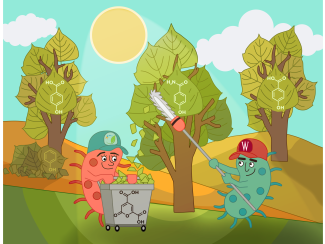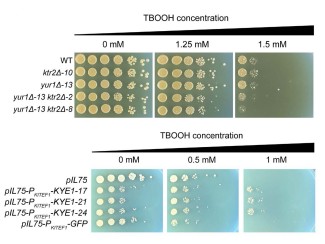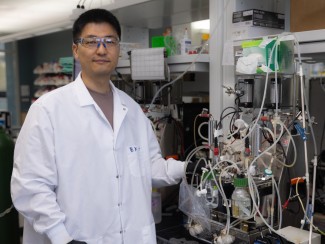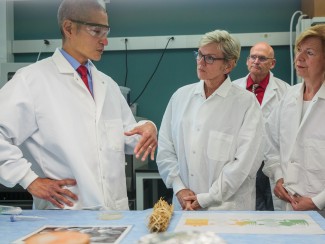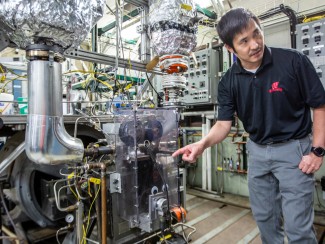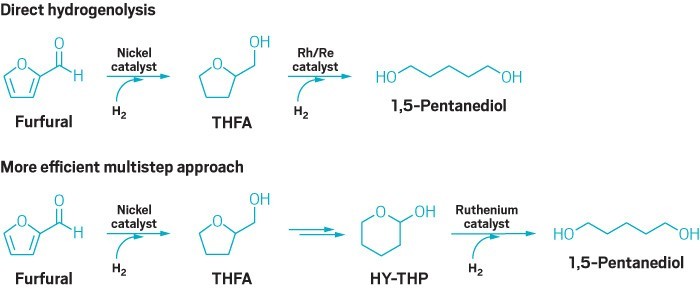
Creating high-value coproducts along with biofuels is an important part of helping biobased chemicals become economically viable so they can complement petroleum-derived chemicals. But this is a tricky proposition because hundreds of interrelated compounds exist in both the petrochemical and biomass chemical pathways. That means sorting through many possible reactions to find optimal routes to target products. In one of the latest examples, George A. Huber, James A. Dumesic, and coworkers at the University of Wisconsin, Madison, have found a new way to make 1,5-pentanediol, a building block for polyurethane and polyester plastics. An economic analysis of the possible routes surprised the team: A longer, multistep route turns out to cost about 40% less than a shorter, more direct route owing to better yield and lower catalyst and utility expenses (ChemSusChem 2017, DOI: 10.1002/cssc.201700178).

